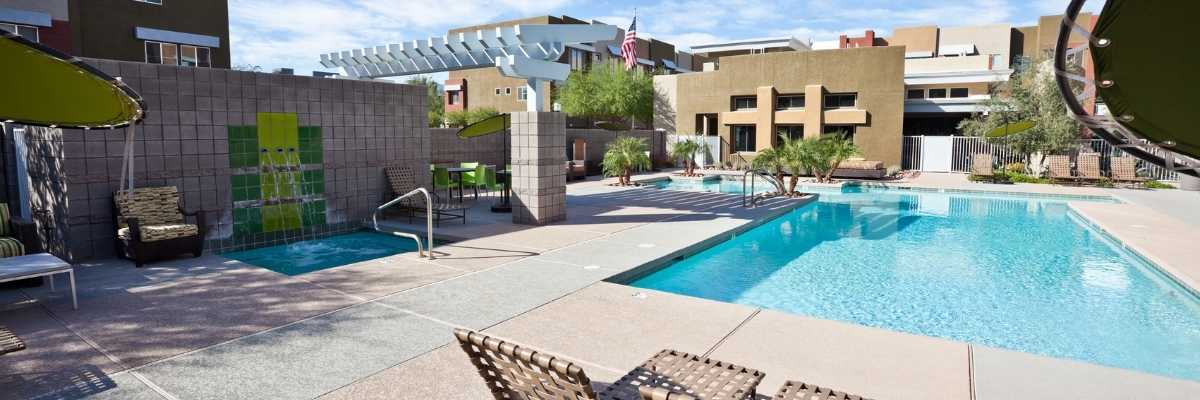
Communities of owners will be able to prohibit those in arrears from using communal areas that are not considered essential, such as the swimming pool, sports courts, or gyms. This is the result of the latest amendments to the Horizontal Property Law approved on 16 June.
The Horizontal Property Law has undergone some modifications as a result of the approval of the Housing Refurbishment Law 10/2022. This law was passed with the aim of promoting residential refurbishments in Spain, as over half of the residential buildings in the country date from before 1980, 75% are not accessible for people with reduced mobility, and 84% have poor energy ratings.
Índice de contenidos
- 1 What are the main changes to the Horizontal Property Law?
- 1.1 Refurbishment works that contribute to energy improvements
- 1.2 Simple majority system
- 1.3 Cost of works
- 1.4 Architectural elements
- 1.5 The defaulter in the spotlight
- 1.6 Communities are given the power to impose penalties
- 1.7 Communities will have an enhanced legal personality
- 1.8 Regulation of the payment procedure order
What are the main changes to the Horizontal Property Law?
Although the bulk of this update revolves around support for refurbishments, some modifications are also included in the Horizontal Property Law to give greater sanctioning powers to communities of owners to act against payment arrears. Here is a summary of the changes.
Refurbishment works that contribute to energy improvements
The main change is the amendments related to refurbishment works or the implementation of energy sources in communities. Along these lines:
It facilitates the decision-making process in communities of owners for access to financing for all works to improve the energy efficiency of buildings.
Simple majority system
A simple majority system will be in place for adopting agreements to carry out these works, as well as for applying for support and financing for their development.
Cost of works
The cost of the works for energy refurbishment will be regarded as general expenses. General expenses are those that a community needs for the adequate maintenance of the building, its charges, and services, with their payment being the responsibility of all the owners.
Architectural elements
Owners are obliged not to alter the common architectural elements of the building and to keep the property in good condition.
The defaulter in the spotlight
The legal text also includes modifications regarding the treatment of unpaid bills. Specifically, in relation to those in arrears:
Communities are given the power to impose penalties
They will be able to prohibit the temporary use of non-essential communal areas such as gyms, sports courts, swimming pools, parks, or gardens. However, the community will not be able to prohibit the use of an essential service such as a lift.
Communities will have an enhanced legal personality
Another of the developments affects the modification of article 21, which allows the community to adopt deterrent measures against delinquency. The text includes the possibility of establishing higher interest rates than the stipulated interest or temporarily withholding the use of non-essential communal elements. In addition, interest will be in force from the date on which payment is due and not on which payment is not made. As a new element, the obligation to issue prior notices is abolished.
These measures may be included in the Articles of Association of each community and under no circumstances will they be retroactive.
The law limits abuse and prevents the prohibition of essential services to owners such as water, electricity, or lifts.
We recommend for you: What repairs are compulsory in a Community?
Regulation of the payment procedure order
The regulation of the payment procedure order for community debts has also been modified in order to make it more flexible, as it will now be possible to claim unpaid debts from the date of the act until the date of the filing of the lawsuit.